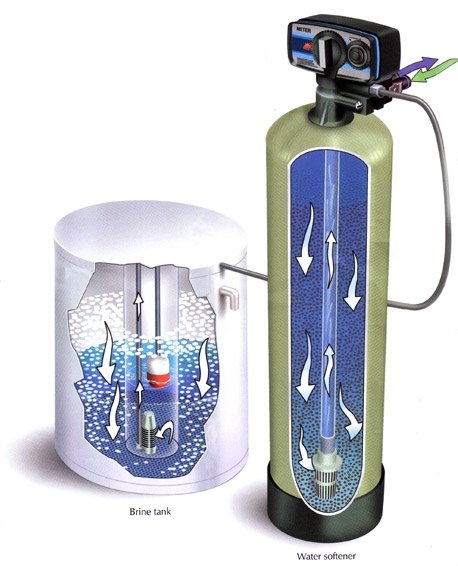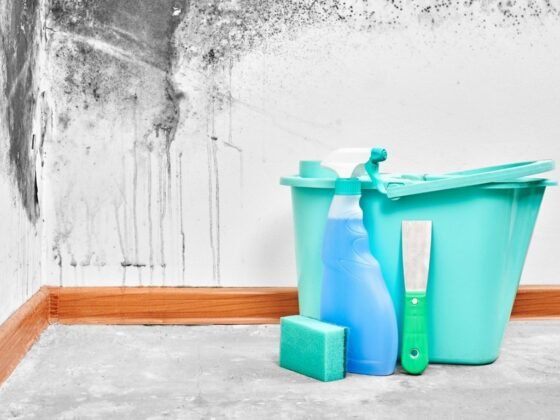What is Water Treatment Filtration? Water treatment filtration is a method that can be used to remove impurities from a raw water source.
It has a variety of uses, such as removing contaminants in household tap water or reducing the concentration of arsenic in drinking water.
The desire for clean and pure drinking water (for human consumption) has motivated developments in technologies that have proven effective in removing contaminants from water. Many of these technologies are called water treatment filtration in Stafford, VA.
The formal name for the process is “wastewater filtration” since it removes impurities including both dissolved and suspended materials, but usually, it can be simplified to just filtration.

It is the process of removing solid particles (such as other microorganisms or suspended solids, such as silt) from a fluid by means of a fine physical barrier.
This process may be carried out with the help of gravity (as in slow sand filters), or by applying mechanical pressure (as in rapid sand filters).
The two main processes for filtration are microfiltration and ultrafiltration. Microfiltration is defined as the passage of the water under pressure through a filter with openings smaller than 1 micrometer (the pore size determines whether microorganisms are removed); ultrafiltration is the filtration of larger particles, down to 0.1 micrometers, which can remove bacteria and colloids from water.
There are many other types of water treatment filtration, including activated carbon filtration (which also can remove odors), multi-stage flash distillation (MSF) membrane distillation, reverse osmosis, and electrodialysis.
What is a Water Softener?
A water softener in Stafford, VA is a water treatment appliance that removes minerals (calcium and magnesium) from hard water.
It leaves behind sodium ions, which replace calcium and magnesium in the pipes along with other water appliances.
The treated water can be used for washing clothes, dishes, or bathing; many people find that it feels better on the skin than untreated hard water because it is less “sticky”.
Read Also:
Water softener vs. Water filtration
A water softener is different from water filtration. For example, it is common to use water softeners in areas with very hard water without using any kind of filtration system.
The most important thing about using a combination of softener and filter is to remember that the main target bacteria are killed by ultraviolet (UV) light so failure to use the UV will compromise this disinfection process.
The main difference between a water softener and a water filtration system is that a water softener only works on the calcium and magnesium ions in hard drinking water to remove limescale, but a filtration system can have other applications to provide better quality drinking water from your tap.
A water softener is a type of ion-exchange purification system used to treat hard water. The mechanism of action involves replacing magnesium and calcium ions (which contribute to limescale buildup in pipes, fittings, and appliances such as dishwashers and kettles) with sodium ions.
The result is softened water for use in washing clothes, bathing, and other home uses. A single water softener unit is capable of treating the entire household’s water supply.
Softened water also poses less of an environmental impact than hard water because its reduced calcium content (less scale) leads to decreased soap consumption in laundering and cleaning tasks. Some people find that softened water makes soap feel less harsh on the skin.
Tips to buy Water Treatment Filtration!
The first thing to consider when buying a filtration device is whether or not it can remove the contaminants that are present in your water supply.
These contaminants are different between areas, for example, you should avoid buying an iron filter if you have high fluoride levels. Be aware of these contaminants and the effects they will have on your family’s health.
The next thing to do is check how much water you use in your home each day. You may find it difficult to find the exact number of gallons used but knowing this information can help you choose a filtration device that will run for a certain number of hours when using the recommended amount of water (usually somewhere between 15 and 30 gallons).
You also want to make sure that the machine you’re using is able to run with your water flow; check what PSI (pounds per square inch) it can handle.
The last thing to consider is the space you have available for filtration, as well as what size of the device will fit your needs.
You can find units that are full-sized or countertop units, so you don’t have to change anything about your current water situation. Generally, devices are cylindrical in shape, although there are some that are more boxlike.
If you are interested to buy water treatment filtration in Stafford, VA, you should get in touch with Workhouse Plumbing. Call us at 571-556-4036 for more information.









